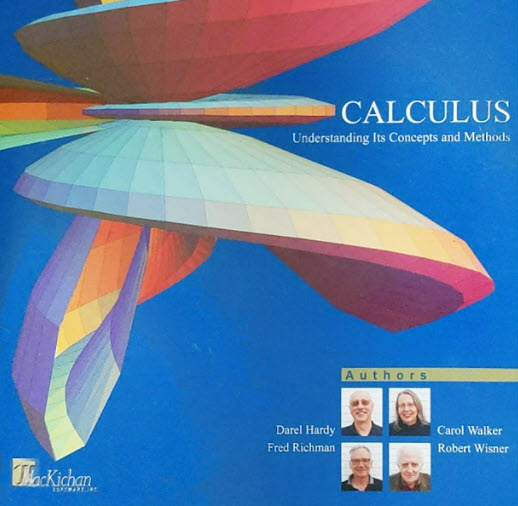Click to view Calculus for Advanced Placement.
Calculus is the mathematics of change. It is a dynamic subject that originated in the study of motion.

Calculus deals with approximations. When measuring rates of change, we often use approximations. We say that the rate of change is the limit of the approximations. Some examples of approximations are measuring the steepness of a curve by approximating it with short straight lines, estimating the area enclosed by a curve with small rectangles or triangles, approximating an infinite sum with finite sums, and fitting a polynomial to a curve.
Calculus deals with ideas that mathematicians and scientists have pondered for centuries: areas and volumes, rates of change, the orbits of planets, infinite sequences.

Calculus has a well-deserved reputation as one of the most challenging courses in the curriculum. It is probably true that you will never need to use many of these techniques in your entire life. However, if you succeed in learning calculus, your brain will thank you. Think of this as brain training. Perhaps never before have you been faced with problems that require such deep thinking, of keeping track of so many details, and of eliminating errors. Such skills and habits will help you to succeed no matter what your career.
If it doesn’t challenge you, it doesn’t change you.
Fred DeVito
Calculus for Advanced Placement originally appeared as a part of the Hardy Calculus Library, a collection of active books that use Scientific Notebook™ as a browser. The environment encourages users to experiment and work with additional functions and their graphs, to learn to use the built-in computer algebra system to do direct computations, and create new animations.
